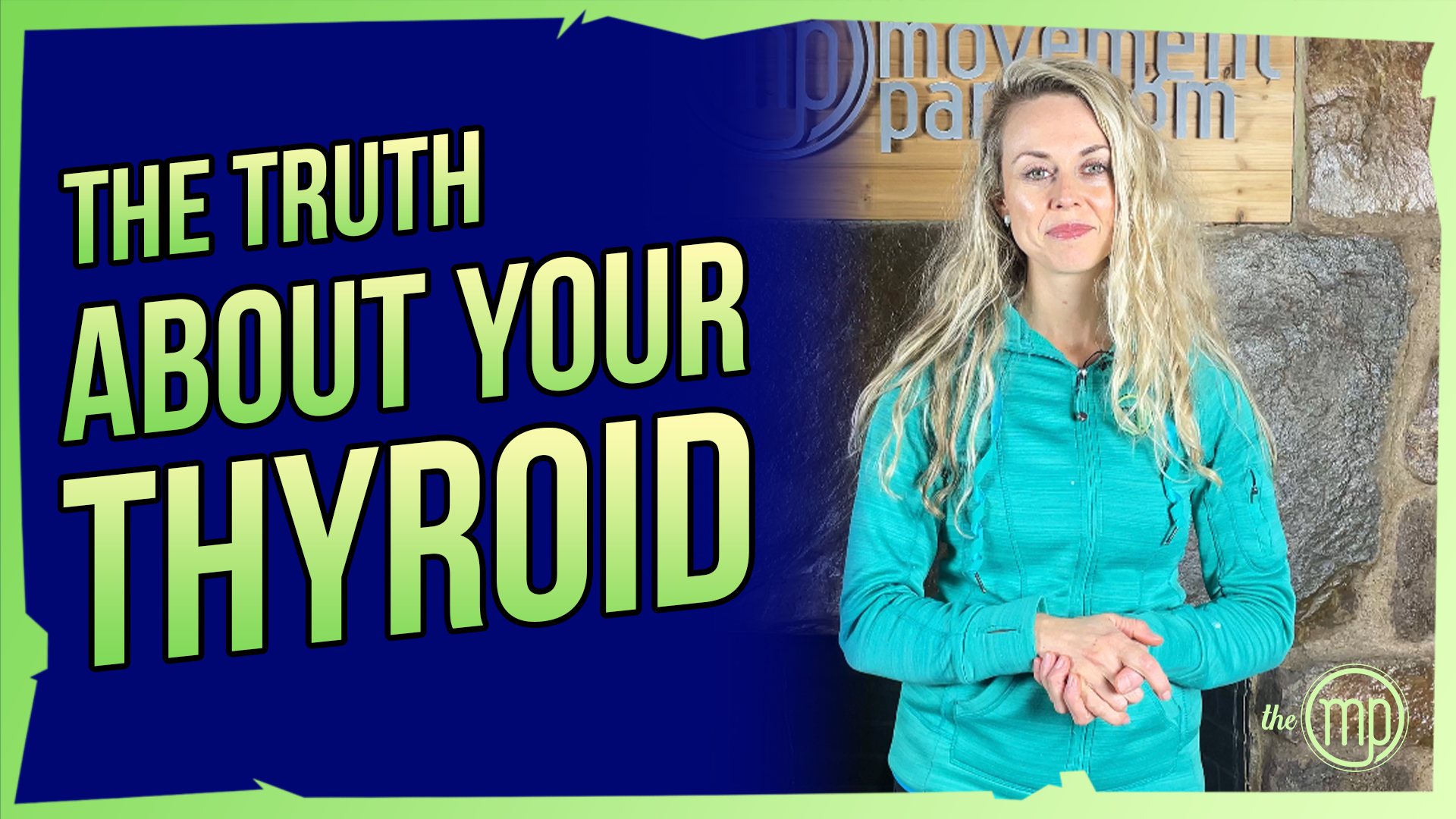Are you a person that sets a New Year’s resolution every year, but doesn’t quite follow through with it? Maybe you know a lot of friends and family members that set goals, but by the end of the year, you ask them if they’ve done them
Did you know that one in seven adults is diagnosed with an underactive thyroid and 60% of the people with a thyroid condition are unaware that they even have an issue? Hashimotos thyroiditis is an autoimmune disease and affects 1-2 % of the population. It is also more common in women than in men. It is really important to understand the common signs and symptoms, risk factors, proper testing, why do you get thyroid issues, and why is it so prevalent?
The thyroid is a butterfly-shaped gland that sits underneath the Adam’s apple. It is important for just about every organ system in our body. It secretes two hormones, T3 (Triodothyronine)and T4 (Thyroxine) and the thyroid impacts everything such as body temperature, metabolism, growth and development, brain development, among many other important essential functions in our body.
What are some things that can happen when the thyroid goes awry? The ten most common symptoms of an underactive thyroid are:
- Dry skin and hair
- Weight gain
- Fatigue
- Hair loss
- Menstrual irregularities
- Edema
- Muscle/joint aches
- Constipation
- Depression
- Cold intolerance
What are the things that disrupt the thyroid?
1. Stress
When we think about the hierarchy of how our thyroid might be affected, number one is always the adrenals. So when we have chronic activation of our stress pathway that means that we are chronically releasing cortisol. Cortisol negatively impacts our thyroid function. Our adrenals impact our thyroid which then in turn can impact our sex hormones. If we want to think about reverse engineering why you may have gotten a thyroid condition or how we would want to address the root cause, it’s important to always include stress management as part of the equation.
2. Toxins, infections, radiation, medications
Other things that will impact the conversion of T4 to T3 are things like infections, radiation, medications, trauma, and toxins. Examples of toxins are things like herbicides, pesticides, cleaning chemicals, and plastic water bottles. Take the Toxic Exposure Questionnaire HERE. Medications such as Lithium, used to treat bipolar disorder, various cancer drugs, and Amiodarone, used to make the heart beat more regularly, can contribute to hypothyroidism.
3. Nutrient deficiencies
Some of our key nutrient deficiencies that will drive thyroid dysfunction because the thyroid needs these things for proper conversion are ferritin (iron), vitamin D, Vitamin A selenium, zinc, and iodine. These are all key players in making sure that we are identifying the root cause of the thyroid dysfunction and also treating it appropriately.
Testing
Now that you know the common symptoms and causes, let’s look at testing. As it relates to testing, the most common lab value that is tested is TSH, the thyroid-stimulating hormone. This is a reflection of the pituitary gland, the master gland, which is what secretes this particular hormone. When thyroid levels are low in the body. The pituitary gland will make even more TSH. This can be totally normal and you can still have thyroid dysfunction. So, it is necessary, and critical, to have a full thyroid panel if you are suspecting symptoms. I would look at the patient’s history, clinical presentation, risk factors, and then determine if thyroid testing is appropriate. But, you need a full panel. That would include your TSH, Free T3, Free T4, total T3, reverse T3, TPO antibodies, and thyroglobulin antibodies. It is important to have all of those to get a full picture of what’s happening and you can look at specific ratios.
If you’ve been dealing with any of these issues please make sure to reach out so that we can help guide you on the right path. Recognize that hormone replacement is appropriate, in many cases, and it’s just a matter of finding the root cause so that you’re not just simply putting a Band-Aid on what’s happening. That’s why it’s really necessary to figure out what nutrient deficiencies you may have and what potential toxins you have been exposed that are contributing to your condition. You want to make sure that you continue to work towards finding the underlying causes of your thyroid condition, so that you can continue to feel your best, and living the life that you deserve.
If you’d like to schedule a free 15 minute virtual discovery session, please email [email protected] or text 302-373-2394 to schdule. We’d love to help you get healthy again!
For more content, make sure to subscribe to our YouTube channel here.

